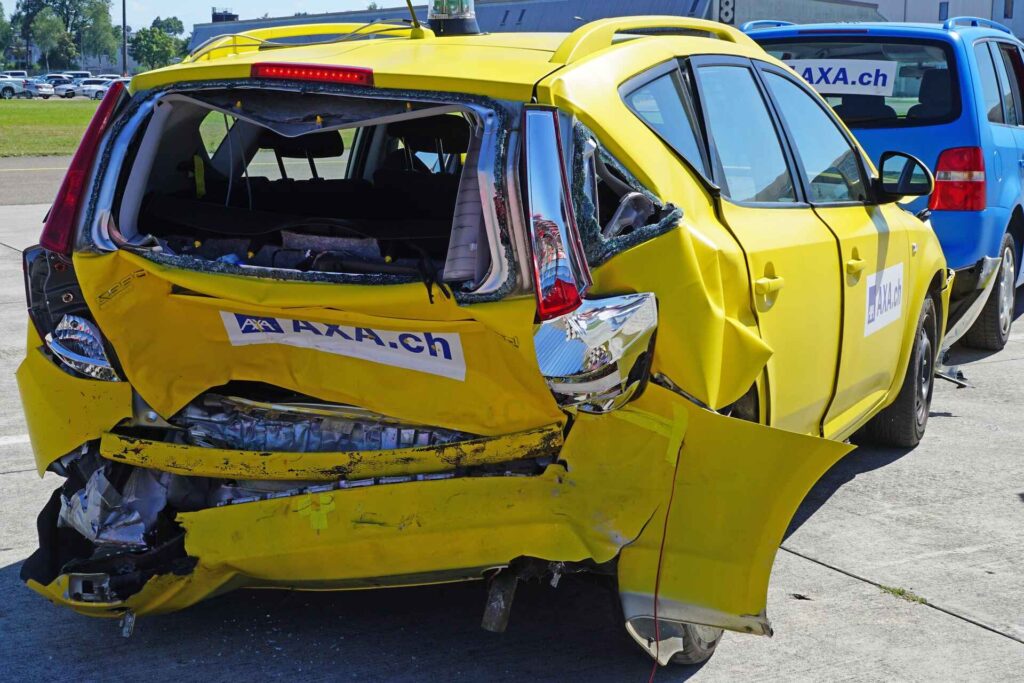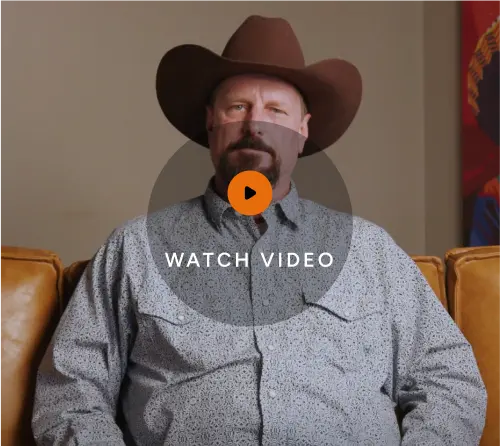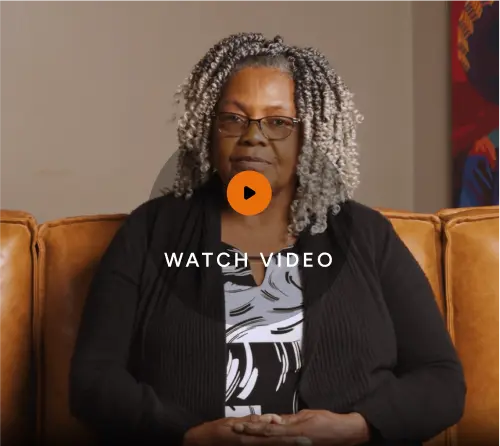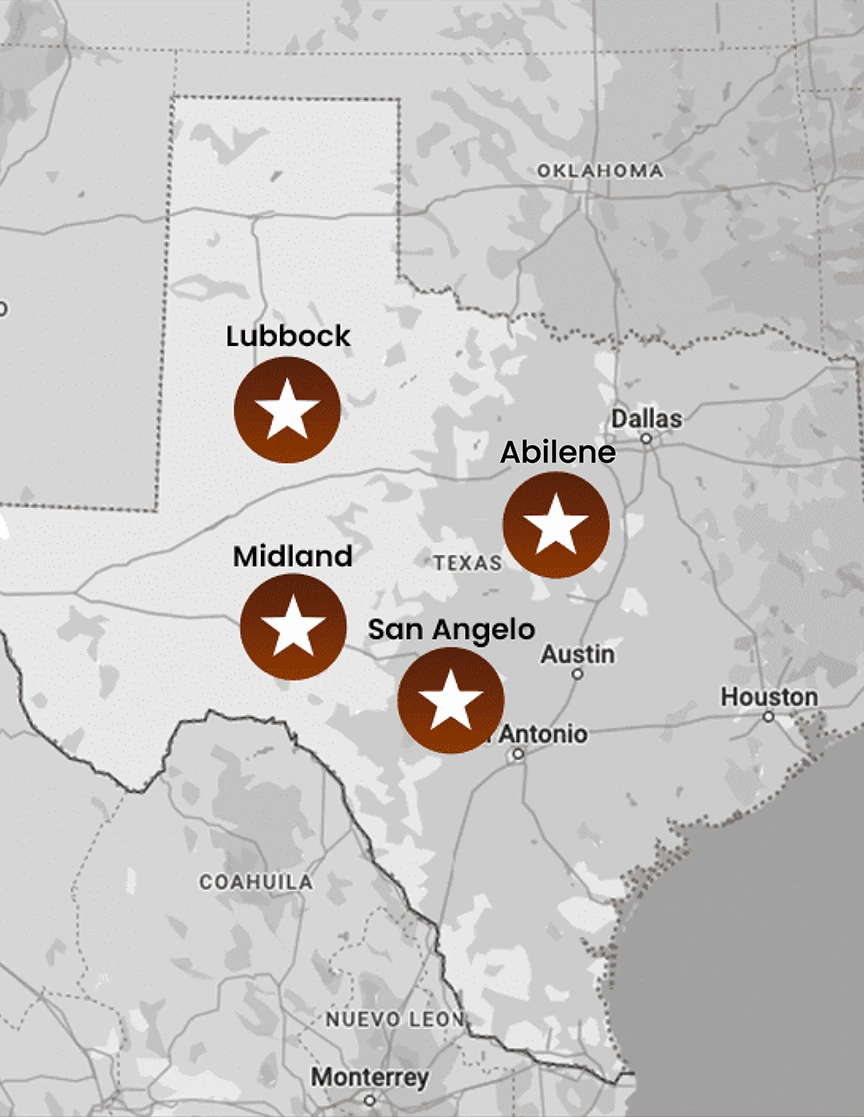The average payout for a rear-end collision in Texas ranges from $2,000 to $1,000,000 and more, depending on the circumstances of the accident. More severe injuries or significant damages can result in settlements exceeding this range.
Several factors influence the final payout amount, which may vary by case.
- Injury Severity
- Damage to Vehicles
- Insurance Coverage
- Fault Contribution
- Legal Support
- Lost Earnings
- Emotional and Physical Suffering
- Property Repair Costs
Every rear-end collision case is unique, and consulting with a lawyer from Keith & Lorfing after an auto accident helps ensure a fair settlement that reflects the full scope of losses.

Wondering about the average payout for a rear-end collision in Texas? Contact our Abilene car accident lawyer today to discuss your injury claim and maximize your compensation!
Find out moreDo You Have Grounds for a Rear-end Settlement Claim?
To pursue a rear-end settlement claim in Texas, you must meet certain criteria to ensure the claim is valid and actionable.
- First, you must have sustained injuries as a result of the crash. These injuries could include physical harm, emotional distress, or financial losses caused by medical expenses and missed work.
- Second, you must file your claim within the Texas statute of limitations. For rear-end collision claims, the timeframe is two years from the date of the crash. Filing after this deadline generally bars you from recovering compensation, so acting promptly is best to protect your rights.
If you’re unsure about your eligibility, reach out for tailored advice specific to your situation. Our experienced legal team at Keith and Lorfing can assess your case during a free consultation to determine your next steps and how we can help you secure the compensation you deserve.
Contact us today:
- Phone: 325-225-0670
- Contact Us Page
Our Settlement Examples
Here are some notable examples of rear-end collision cases, demonstrating the range of circumstances and outcomes:
- East Central ISD Bus and 18-Wheeler Accident: A school bus carrying approximately 30 passengers rear-ended an 18-wheeler. While no serious injuries were reported, some students sustained minor injuries.
- Fatal Rear-End Collision on I-20 in Gregg County: An 18-wheeler rear-ended another truck, leading to one fatality. Although details about injuries are still emerging, this case demonstrates the devastating outcomes that rear-end collisions can have, especially involving large commercial vehicles.
- DUI-Related Rear-End Crash in Fresno County: A 65-year-old Texas missionary, Mary Hardin, tragically lost her life when a suspected DUI driver rear-ended her vehicle. The driver, identified as David Alvarado, is facing charges.
- Sudden Braking Accident on Highway 249 in Houston: A lead driver abruptly applied brakes, causing a van to rear-end the car. The car’s driver succumbed to his injuries. This case illustrates how liability can be shared or shifted depending on the actions of the lead driver.
- Rear-End Collision on I-95 Involving a Semi-Truck: A sedan collided with a semi-truck in Texas, which was traveling ahead in the same lane. Details about injuries remain unclear, but such accidents often involve extensive investigations to determine fault and assess damages.
Average Settlement Amounts by Accident Type
The settlement amount for rear-end collisions in Texas varies depending on the severity of the crash, the injuries sustained, and the extent of property damage. Below, we break down the average settlement amounts for different types of rear-end collisions and the factors influencing them.
Minor Fender Benders
The average settlement for a rear-end fender bender in Texas is $2,000 to $10,000. These accidents typically result in minimal property damage and minor injuries, such as whiplash or muscle strains.
Settlements primarily cover vehicle repair costs and medical bills for short-term treatments, with little consideration for long-term impacts.
Moderate Collisions
The average settlement for a moderate rear-end collision in Texas is $15,000 to $50,000. These collisions may cause injuries like herniated discs, fractures, or prolonged neck pain, along with more noticeable vehicle damage.
Settlements often include compensation for medical bills, therapy, and lost wages during recovery.
Severe Crashes
The average settlement for a severe rear-end collision in Texas is $100,000 to $500,000 or more. These crashes often result in catastrophic injuries, including spinal cord damage, traumatic brain injuries, or fatalities.
Settlements account for extensive medical expenses, long-term care, and non-economic damages like pain and suffering.
The average settlement for rear-end collisions with commercial vehicles in Texas is $250,000 to $1,000,000 or more. These cases often involve higher payouts due to the commercial driver’s liability and the potential for severe injuries.
Companies typically carry higher insurance limits, which can lead to larger settlements.
Multi-Vehicle Rear-End Collisions
The average settlement for multi-vehicle rear-end collisions in Texas ranges from $50,000 to $500,000, depending on the number of vehicles involved and the severity of injuries.
These accidents are more tricky, with shared liability and higher overall damages due to multiple claims.
Rear-End Collisions Involving Rideshare Vehicles
The average settlement for rear-end collisions involving rideshare vehicles like Uber or Lyft in Texas is $50,000 to $1,000,000. Rideshare companies carry higher insurance policies for drivers during active rides, which can result in larger payouts for victims.
Rear-End Collisions with Drunk Drivers
The average settlement for rear-end collisions caused by drunk drivers in Texas is $100,000 to $500,000 or more. These cases often involve punitive damages in addition to compensation for medical expenses and emotional suffering.
Rear-End Collisions Involving Motorcycles
The average settlement for rear-end collisions involving motorcycles in Texas is $75,000 to $500,000. Motorcyclists often suffer severe injuries due to limited protection, leading to higher settlements.
Rear-End Collisions in Construction Zones
The average settlement for rear-end collisions in construction zones in Texas is $50,000 to $200,000. These areas often involve reduced speed limits and altered traffic patterns, increasing liability for drivers who fail to adjust.
Rear-End Collisions Involving Pedestrians
The average settlement for rear-end collisions involving pedestrians in Texas is $150,000 to $1,000,000 or more. Pedestrians struck by vehicles often experience life-threatening injuries, resulting in substantial settlements.
Additional reading: What is the average car auto accident lawsuit timeline
Curious about the average car accident settlement in Texas? Speak with our Midland car accident lawyer to understand your options and pursue the compensation you deserve!
Types of Damages in Rear-End Collision Settlements
Rear-end collision settlements in Texas typically cover a variety of damages, including both economic and non-economic losses. These damages are designed to compensate accident victims for the financial and emotional toll caused by the collision.
- Economic Damages: These include tangible expenses such as medical bills, rehabilitation costs, lost wages, and property damage. For example, if you suffered neck and back injuries in a rear-end collision, the settlement amount would factor in hospital visits, therapy, and time off work.
- Non-Economic Damages: These compensate for intangible losses such as pain and suffering, emotional distress, and reduced quality of life. For instance, victims dealing with chronic pain or mental trauma from a rear-end car accident can seek compensation for these long-term effects.
- Punitive Damages: Punitive damages may be awarded in cases involving gross negligence, such as a distracted or intoxicated driver. These are not tied to specific losses but aim to punish the at-fault party and deter similar behavior.
Additional reading: Rear Ended by a commercial truck average settlement amounts
Legal Framework for Rear-End Collisions inTexas
Rear-end collisions are among the most common car accidents in Texas, and specific laws shape how these cases are resolved. Below is a breakdown of the legal framework influencing settlement amounts:
- Fault Determination: Texas presumes the rear driver is at fault unless evidence shows otherwise. However, the state follows a modified comparative fault rule, meaning compensation is reduced by the percentage of fault assigned to the victim. If the victim is over 50% at fault, they cannot recover damages.
- Traffic Regulations: Violations such as following too closely (Texas Transportation Code §545.062) or distracted driving can establish liability. Compliance with all traffic rules is key to determining fault and influencing settlement amounts in Texas.
Key Factors Affecting Settlement Amounts
Settlement amounts for rear-end collisions in Texas depend on several critical factors. These factors help determine the total compensation for victims, covering both economic and non-economic damages.
Below, we break down how each factor contributes to the overall settlement.
Severity of Injuries
Severe injuries lead to higher settlements for rear-end collisions in Texas. Minor injuries like mild whiplash result in lower payouts because they require limited treatment.
Severe injuries, such as spinal cord injuries, concussions, or broken bones, increase settlement amounts due to the need for extensive medical care. For example, a victim needing long-term physical therapy or surgery will receive more compensation than someone with bruises.
Permanent disabilities, such as paralysis, can result in millions of dollars in settlements to cover lifetime medical expenses and lost wages.
Extent of Damages
Medical costs directly influence the settlement amount for rear-end accidents. Immediate expenses, such as hospital visits and surgeries, form the baseline. Long-term costs, like rehabilitation and pain management, add to the total payout.
For instance, a victim requiring multiple surgeries or long-term treatment will likely receive a higher settlement than one with minor injuries. Future medical needs are always factored into rear-end accident settlements in Texas, ensuring victims have financial support for recovery.
Insurance Policy Limits
The at-fault driver’s insurance policy limits cap how much a victim can recover. Texas law requires drivers to carry at least $30,000 per person, $60,000 per accident, and $25,000 for property damage.
If these limits are insufficient, victims may use Uninsured/Underinsured Motorist (UM/UIM) coverage. For example, a severe crash with medical bills exceeding $100,000 will likely require additional compensation through the victim’s own policy or legal action.
Shared Fault
Texas uses comparative negligence laws, reducing compensation if the victim shares fault. Victims who are more than 50% at fault cannot recover damages.
For example, if a victim is found 20% at fault for a rear-end accident due to sudden braking, their settlement will be reduced by 20%. Clear evidence, such as police reports or dashcam footage, helps reduce fault percentages and secure higher payouts.
Legal Representation
Our attorneys handle negotiations, gather evidence, and ensure all damages, including pain and suffering, are included. For example, our lawyer can challenge a low offer by presenting evidence of long-term injuries or lost wages.
Lost Wages
Temporary losses are straightforward, while permanent losses, such as reduced earning capacity, require detailed calculations. For instance, a victim unable to return to work may claim compensation for future income loss.
Pain and Suffering
Pain and suffering damages cover physical pain and emotional distress. These are calculated using methods like the multiplier or per diem approach.
For example, a victim with chronic pain, PTSD, or depression after a rear-end collision in Texas may receive higher compensation. Cases involving permanent disabilities or severe injuries often result in larger payouts.
Property Damage
Property damage compensation includes vehicle repairs or replacement. Minor damages, like scratched paint, result in smaller payouts, while significant damage or total losses lead to higher settlements.
For instance, the repair costs for a luxury vehicle severely damaged in a rear-end accident will result in a larger payout than a minor fender bender. Accurate repair estimates are best for maximizing recovery.

Rear-End Accident Statistics in Texas
In Texas, rear-end collisions continue to contribute significantly to traffic fatalities and injuries. In 2023, a notable percentage of the 4,283 total traffic fatalities occurred due to rear-end crashes.
Rear-end collisions often lead to severe injuries such as whiplash, back trauma, and head injuries, which can result in costly medical expenses, lost income, and long-term pain and suffering. These crashes show the importance of enforcing traffic safety regulations and promoting defensive driving to prevent avoidable deaths and injuries.
In 2023, Texas saw a slight decrease in motor vehicle fatalities, with 4,283 deaths—a 2.81% drop from 2022’s 4,407 fatalities. Despite this, serious injury crashes remained significant, with 15,219 incidents leading to 18,752 individuals sustaining major injuries.
Texans traveled a staggering 294.785 billion miles in 2023, marking a 1.34% increase from the previous year.
What to Do Immediately After Being Rear-Ended
If you’ve been involved in a rear-end collision in Texas, taking the right steps can protect your safety and your ability to secure a fair settlement amount.
Here’s a step-by-step guide to follow:
- Ensure everyone is safe, and call 911 immediately if anyone is hurt.
- Move your vehicle to a safe location, such as the shoulder, to prevent further incidents.
- File a police report to document the accident officially.
- Collect driver and witness details, including names, contact information, and insurance details.
- Take photos of the vehicles, injuries, and the accident scene for evidence.
- Visit a doctor promptly to identify any injuries that may not be immediately visible.
- Inform your insurance provider about the accident, but avoid admitting fault.
- Consult an attorney from our firm to explore your legal options and maximize your compensation.
Involved in a rear-end accident? Find out what compensation you may be entitled to as a result of the accident. Reach out to our San Angelo car accident lawyer today!
Find out moreWhen to Accept a Rear-End Collision Settlement
Deciding when to accept a rear-end collision settlement requires careful evaluation of your case, the offer on the table, and its potential long-term implications. While the process can be overwhelming, following these key considerations can help ensure you make the best decision.
- Consult with Our Personal Injury Attorneys: Our experienced team will review your settlement offer to ensure it fully compensates for your injuries and damages. We’ll help you identify whether the amount is fair and fight to maximize your compensation.
- Evaluate the Fairness of the Offer: Our attorneys ensure the settlement covers all current and future damages, including medical expenses, lost wages, property damage, and pain and suffering.
- Consider Long-Term Impacts: Rear-end collision injuries like spinal trauma or whiplash can have lasting effects. We ensure your compensation reflects any ongoing medical care or reduced earning potential.
- Understand the Finality of Settlement: Future claims are waived once a settlement is accepted. We’ll confirm that the offer accounts for all damages before you agree.
- Rely on Us to Negotiate or Go to Trial: If the offer doesn’t reflect the severity of your injuries, our attorneys will negotiate aggressively. If necessary, we’re prepared to take your case to court to secure the compensation you deserve.
By working with a knowledgeable personal injury lawyer, you can evaluate your options, understand the implications of the settlement, and ensure you’re not leaving money on the table. Contact us today for a free consultation to discuss your case and maximize your rear-end collision settlement.
How to File a Lawsuit for a Rear-End Collision
Filing a lawsuit after a rear-end collision involves multiple steps to ensure your case is properly presented and maximizes your chance of receiving fair compensation. Below is an overview of the legal process:
- Consult a Personal Injury Lawyer: Our team can determine if filing a lawsuit is the right course of action. They will assess the settlement amount you deserve and help build your case.
- File the Complaint: Submit a formal complaint to the court detailing the accident, injuries sustained, and why the other driver is liable. This step initiates the lawsuit process and notifies the at-fault party.
- Serve the Defendant: Under Texas law, this is a necessary step to inform the defendant of the legal claim against them.
- Engage in Discovery: Both parties exchange evidence and information, such as medical records, accident reports, witness statements, and other documentation, to strengthen your rear-end collision settlement case.
- Attempt Settlement Negotiations: Engage in discussions to resolve the case before going to trial. Our lawyer will negotiate with the insurance company to secure a fair settlement amount.
- Prepare for Trial: If no agreement is reached, our lawyer will prepare your case for court. This preparation includes gathering evidence, consulting expert witnesses, and reconstructing the accident to demonstrate liability.
- Attend the Trial: Present your case to a judge or jury, who will determine fault and the amount of damages to be awarded. Your lawyer will advocate on your behalf to ensure full compensation for your injuries and losses.
Contact Us for Expert Legal Advice if You’ve Been Rear-Ended in Texas
If you’ve been involved in a rear-end collision in Texas, our experienced team is here to help. We’ll evaluate your case, guide you through the legal process, and fight for the settlement amount you deserve.
Don’t face this alone—get personalized advice tailored to your situation today.
Wondering about your car accident injury settlement? Contact Lubbock car accident lawyer today and learn what compensation you may be entitled to.
Find out moreFAQs
How long does it take to settle a car accident in Texas?
Most car accident settlements in Texas are resolved within three to nine months. However, difficult cases involving severe injuries, disputed fault, or insurance negotiations may take over a year to settle.
The timeline depends on factors like the extent of accident injuries, settlement amount, and legal proceedings.
What is an example of a pain and suffering settlement in Texas?
An average pain and suffering settlement for a car accident in Texas might range from $15,000 to $100,000, depending on the injuries. For instance, a rear-end collision involving whiplash with chronic pain may result in a $25,000 payout, while severe injuries like spinal damage could lead to compensation of $200,000.
Non-economic damages like pain and suffering are calculated using the multiplier method, where economic damages (e.g., medical expenses) are multiplied by a factor based on the injury’s severity. Courts and insurers also consider how the injuries impact the victim’s daily life and long-term recovery.
How long can an insurance company take to settle a claim in Texas?
Texas law requires insurance companies to acknowledge claims within 15 days and decide on acceptance or denial within 15 more days after receiving all the necessary documents. However, some settlement negotiations can prolong the process, with some car accident claims taking weeks or months to resolve.
The timeline may extend in cases involving severe accident injuries or disputes over fault. Insurers must act in good faith, but delays may occur due to additional investigations or third-party evaluations. If the process stalls, consulting a personal injury lawyer can help ensure compliance and accelerate the settlement process.




